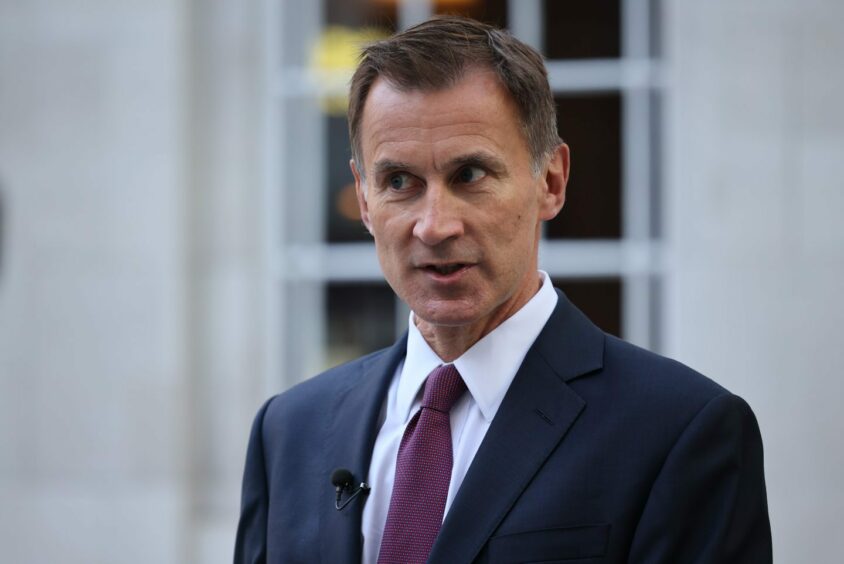 © George Cracknell Wright/LNP/Shut
© George Cracknell Wright/LNP/Shut The UK government is planning for the introduction of a new tax mechanism for North Sea oil and gas operators following the scheduled end of the windfall tax in 2028
The Treasury’s Oil and Gas Fiscal review, which was released today, confirmed the Energy Profits Levy (EPL) will end in March 2028, or earlier if prices fall below the Energy Security Investment Mechanism (ESIM) levels, set at $71.40 per barrel of oil and £0.54 per therm of gas.
However, the review states to “ensure a fair return for the nation at times of unusually high oil and gas prices” the government will develop a new mechanism which could be used to respond to market price shocks post-2028.
The government will ensure the introduction of any new mechanism happens “in a more predictable way” in order to not deter investment.
Included in the review are a set of principles for supporting investment which will inform the development of a future tax response to price shocks.
These include measures the government providing details on how price shocks will be defined before the end of the EPL, regular engagement with stakeholders including a twice-yearly ministerial forum and assessing the benefits of capturing a “share of revenue resulting from high prices”, rather than profits.
Oil and gas taxes to raise £6.1bn in 2023-24
In its November Economic and Fiscal Outlook, the Office for Budget Responsibility (OBR) said oil and gas taxes will raise an estimated £6.1 billion in 2023-24.
This figure represents a reduction of £3.7 billion compared to the year before.
The OBR said the decrease in tax revenues is in large part due to lower than expected energy prices and (to a lesser extent) lower production and higher expenditure by operators, including for investment and decommissioning.
The OBR said it expects oil and gas receipts to fall relatively in the coming years to reach £2.1 billion by 2028-29 as energy prices and production declines.
The oil and gas tax revenues include offshore corporation tax, petroleum revenue tax (PRT) and the EPL, which together place a 75% tax on North Sea profits until the end of March 2028.
Energy transition and decarbonisation
The review also confirmed the government will “remove the tax barriers to oil and gas assets being repurposed for use in CCUS projects”.
This will be included as part of legislation for a future finance bill to introduce tax relief payments made by oil and gas companies into decommissioning funds.
The review also includes measures to decrease tax relief provided for investment in decarbonisation measures such as electrification.
Currently, the government’s decarbonisation investment allowance provides £1.0925 in relief for every £1 spent.
After the end of the EPL in 2028, this tax relief will reduce to £0.4625 per £1 spent on investment, including for decarbonisation.
“The relatively lower value of tax relief available in the permanent regime will rightly reflect the lower rate of tax applicable after the end of the EPL,” the review states.
Offshore industry enthusiasm may be ‘dampened’
Responding to the measures outlined by the Treasury, PwC UK energy and infrastructure tax partner Colin Smith said oil and gas businesses will welcome the confirmations relating to the EPL in the review and the removal of tax barriers related to energy transition activities.
“But the industry’s enthusiasm may be dampened by the proposals for a new mechanism,” he said.
Offshore Energies UK (OEUK), the trade association for North Sea energy firms, responded to the Autumn statement recognising its “focus on business investment as fundamental to energy security, jobs and a pragmatic energy transition”.
However the organisation warned the EPL and the Electricity Generator Levy “risk further undermining the UK’s homegrown future success and there is already evidence of capital, supply chain and work force flight”.
“There is always intense competition for capital investment and the government must use every available lever to ensure it stays in the UK,” OEUK said in a statement.
“Our domestic energy needs confidence to invest in the next generation of energy security through fiscal certainty, competitive returns, and long-term commitments by policy makers.”
Chancellor ‘hit the right notes’
OEUK chief executive David Whitehouse said while the Chancellor “hit the right notes today” the government must work to make the UK an “irresistible place” to invest and innovate.
“The decarbonisation of our economy is one of the greatest challenges of our time, but we must also seize its opportunities,” Mr Whitehouse said.
“The fiscal announcements, allowances, apprenticeships, planning and grid reforms announced today will help firms invest in low carbon infrastructure, R&D and our world class workforce.
“We need these investments to grow the economy, support jobs and deliver reliable homegrown energy to people across the UK.”
Mr Whitehouse said it was “heartening to see an emerging cross-party consensus on the need for long term investment” in the offshore sector.
“The UK needs reliable supplies of homegrown energy that boost our economy and help us reach net zero,” he said.
“By the mid-2030s, oil and gas will still provide 50% of our domestic energy needs.
“The UK’s offshore energy industry has the skills, people and supply chains we must nurture to build a UK business-led energy transition.”
OEUK outlines policy priorities
OEUK put forward a range of proposals it wants to see the UK government prioritise.
The association said it wants government to incentivise investment in domestic energy production through “effective tax policy, including headline rates and relief”.
OEUK also called for a “better strike price” in the wind Contract for Difference scheme and “properly linked” UK and EU emissions trading schemes, as well as establishing a skills passport for workers in the energy sector.
“The companies investing in new opportunities like fixed and floating offshore wind, hydrogen and carbon capture and storage require the cashflow from a stable and predictable oil and gas business,” OEUK said.
“The long-term goal should be to grow these sectors in a way that avoids long term government subsidies.”


